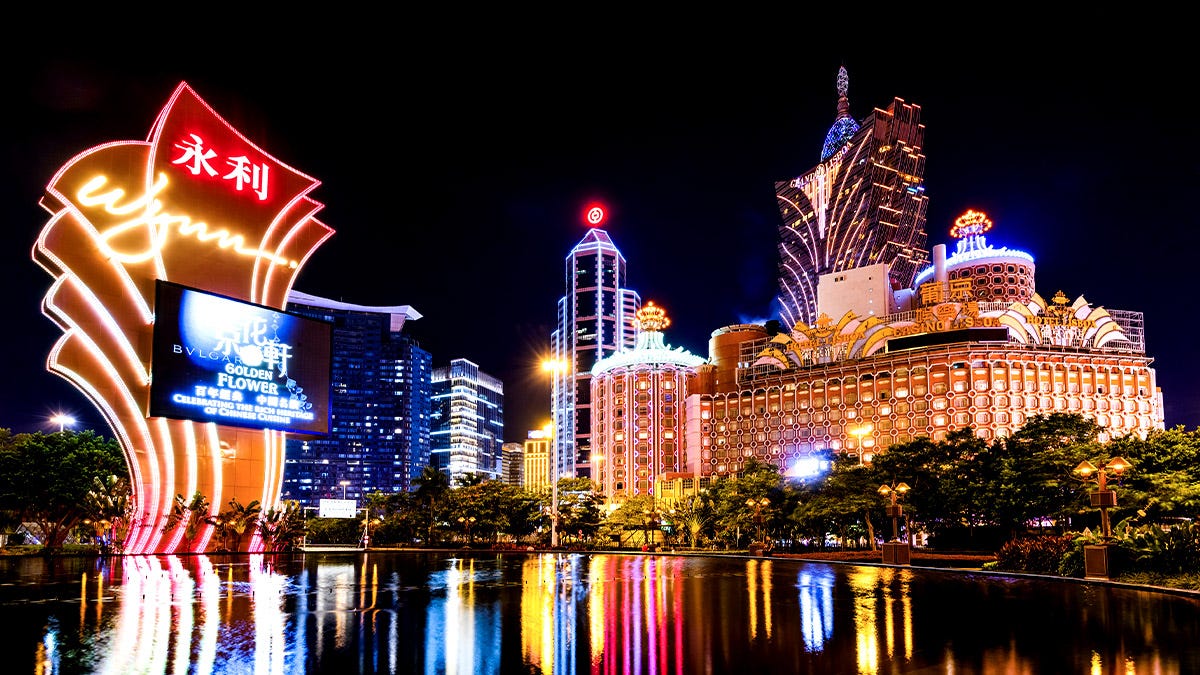#20: Macau, Asia's Top Spot for Gambling
Macau is made up of a collection of small islands off China’s south-eastern coast. It has been inhabited since the Han dynasty, welcomed refugees in the wake of the Mongol invasion of Mainland China, and was the site of multiple Ming Dynasty victories over expansionist European empires. However, Macau is not known for any of these things. For a while now, Macau has been know for one thing & one thing only: gambling.
Macau is the largest gambling resort anywhere in the world, far eclipsing Monte Carlo & Las Vegas. On paper it’s one of the wealthiest territories on Earth due its legal monopoly on gambling with the activity illegal in Mainland China & Hong Kong. 80% of tax revenues for the territory comes from gambling, which is a source of tourism for the islands. 68% of tourists come from Mainland China.
Macau is known to some as the “Las Vegas of the East”, which does the Chinese territory something of an injustice. Gambling revenues in Macau are 7x larger than the revenues of Las Vegas; so if anything Las Vegas should be known as “The Little Macau of the West”. The gambling revenues are such that each citizen of Macau is sent a cash payment every year - not a bad perk.
Because of this gambling wealth, when measured under GDP per capita under purchasing power parity, Macau is one of the wealthiest territories on Earth (ranking 3rd-equal with Singapore and Monaco). Its Human Development Index is 0.925 which makes it very high, and the territory is the most densely populated area anywhere on Earth. Fully two-thirds of the land currently comprising Macau was reclaimed by the sea, so space clearly carries a premium. The unique nature of Macau’s cross of Portuguese and Chinese architecture has earned its old city centre the designation as a UNESCO World Heritage Site.
Macau first came to prominence in the West as a trading post for the Portuguese, which when failing to get the land through force, managed to get it through diplomacy. This trading post was established in the early 1500s, and the Portuguese managed Macau until the territory was turned over to the People’s Republic of China in 1999.
We get the word “Macau” from a misunderstanding between Portuguese traders and the locals. Macau was known as A-Ma Gang, named after a water goddess A-Ma who was believed by locals to protect the islands from natural disasters. The locals built a temple dedicated to her, called Ma Kok. When the Portuguese traders asked what the name was for the islands, the local thought they meant what the temple’s named was. From Ma Kok we get the Portuguese Amaquao, which evolved into Macau over the centuries.
Macau is a sister city to Lisbon, Coimbra, and Porto in Portugal, Uwajima in Japan, Monte Carlo in Monaco, Linkoping in Sweden, Sao Paulo in Brazil, and Praia in Cape Verde. As a member of the Union of Luso-Afro-Americo-Asiatic Capital Cities, Macau is linked with cities as varied as Bissau of Guinea-Bissau, Maputo of Mozambique, Panaji of India, and Luanda of Angola.
The mixture of Western European & Eastern Asian heritage, along with the glitz & glamour of over-the-top gambling, makes Macau a very interesting part of Asia. Who knows how many fortunes have been won & lost in the time it has taken you to read this edition of the blog?






